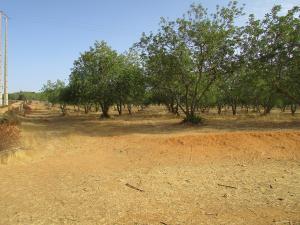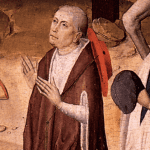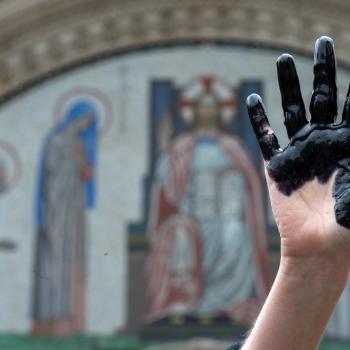
Great disaster, apocalyptic disaster, threatens the earth. We have done much to change the world around us. Science and technology have given us many great powers, making us capable of doing great wonders. But we have ignored the dark underbelly of our technological achievements. We have long thought we can put off to another day the troubles which we create today. We should have known we could not put them off forever. We should have known that one day the bill would come, and like any pyramid scheme, everything will come crumbling down.
The signs are all around us that the bill is coming soon. We have destroyed the habits of countless creatures around the earth. The climate is changing, already resulting in minor catastrophes. But things are going to get worse. We risk mass extinction. Already, there are warnings that over one million animal and plant species could be destroyed within our lifetime. Yes, we have seen many species come extinct before, but they were few and far between compared to what is in store for us in the near future if we do not do something and save them. We should not take such destruction lightly: with the death of so many species, all so quickly, it is likely more will perish with them, as the ecosystem will no longer be sustainable. The rebound of such death is likely to affect, if not outright destroy, humanity itself. The earth needs biodiversity. The different species of the earth work together to help sustain each other. This includes us, humanity. When the balance is overturned, it is hard to predict what the results will be, but it is not difficult to say, even with the best case scenarios, there will be much suffering for those who live in such a changed environment. Sadly, some people do not care; they would rather look at how they can get rich quick, forgetting about the future. Avarice, the root of all evil, has revealed its true face, and it is the face of death.
Jewish and Christian tradition alike remind us that we should be concerned about the earth, to be good stewards of it, preserving it as we render our service to those who are to come after us. God’s grace goes not just to humanity, but to all creation; the earth itself is to be taken up and purified by grace. Perhaps one story, a pious Rabbinic Legend concerning Honi the Circle Drawer makes this point quite well.
Honi (Onias) was an interesting personage from the first century BCE. Josephus, who didn’t often discuss miracle producing holy men, mentioned him in his Antiquities of the Jews:
Now there was one, whose name was Onias, a righteous man he was, and beloved of God, who, in a certain drought, had prayed to God to put an end to the intense heat, and whose prayers God had heard, and had sent them rain.[1]
According to Rabbinic tradition, Honi was asked by the people of to pray for rain. At first, he prayed and nothing happened. Then he drew a circle, entered it, said he would not move until God sent rain, and it began to drizzle. He then told God, in familiar terms, that he wanted something more; then God is said to have sent a heavy storm. Once again, Honi talked to God, saying he wanted something more moderate, after which it began to rain a nice steady rain, until the place was beginning to be flooded. Then, when the people asked for the rain to stop, Honi gave a thanksgiving offering to God, saying the people had enough. Because of the way he talked to God, one sage, Shim B. Shetah, said that Honi might have deserved a ban, but because God responded to him and worked a miracle through him, it was clear God was not disturbed and so no ban would be placed.[2]
Because his prayers were seen as effective, factions within the Jewish populace wanted to use Honi as a source of power, having him curse their enemies. Josephus suggested that this led to his death:
This man had hid himself, because he saw that this sedition would last a great while. However, they brought him to the Jewish camp, and desired, that as by his prayers he had once put an end to the drought, so he would in like manner make imprecations on Aristobulus and those of his faction. And when, upon his refusal, and the excuses that he made, he was still by the multitude compelled to speak, he stood up in the midst of them, and said, “O God, the King of the whole world! since those that stand now with me are thy people, and those that are besieged are also thy priests, I beseech thee, that thou wilt neither hearken to the prayers of those against these, nor bring to effect what these pray against those.” Whereupon such wicked Jews as stood about him, as soon as he had made this prayer, stoned him to death.[3]
However, Rabbinic tradition has a different end for Honi. While he was said to be a holy miracle worker, he was almost like a holy fool, being given miracles by God, sometimes for his own correction. Thus, it was said that one day Honi passed by a worker planting carob trees. Honi was perplexed by this, because carob trees take seventy years to bear their fruit. After asking if the man planned to eat the fruit seventy years in the future, Honi was told: “I found the world with carob trees. Just as my ancestors planted for me, so I plant for my offspring.”[4] Once the conversation was finished, Honi found a place to eat, and then fell asleep. When Honi woke up, he saw the carob tree which he had seen being planted was fully grown; talking to the people he met, he found out he had been asleep for seventy years. No one, however, recognized him nor believed him when he told them who he was. In the end, in despair, he prayed for God to grant him peace, which God did as Honi passed away. Later Rabbis suggested that the two stories could be related together, that Honi was knocked into a coma by the stones, left for dead, explaining why some thought he died only to briefly come back to life seventy years later. While such an attempt to tie the two legends together is interesting, the point nonetheless stands: Honi, like many others, might have had a sense of holiness about him, but he lost sight of the greater picture. God expects us to consider not only our own livelihood, but the future: we are to take care of the earth, making sure it is passed down to later generations in as good a shape (or better) as we received it. We must not think selfishly, looking only for what we can get today without consideration of those who come after us.
The moral of Honi’s story is one recognized by wisdom teachings found all over the world. For example, many Native American traditions suggest that we should act considering the ramification of what we do for the next seven generations. It is not that we leave something for our children to inherit, it is that we make sure we leave the earth, and all its treasures, preserved intact. We are called to share it with each other but also with the generations to come. We cannot ignore our responsibility to them. What we do will affect future generations. This is how we can and should read statements likes, “for I the Lord your God am a jealous God, visiting the iniquity of the fathers upon the children to the third and fourth generation of those who hate me” (Deut. 5:9b RSV). The consequences of our actions affect not just us but those who follow us.
What we do to the earth today will have consequences for the future. We are responsible for it as well as the sufferings which will come to those who follow after us if we do nothing to stop the devastation before us today. The earth is awaiting grace. Let us now fulfill our duty to God by being its stewards, protecting it from ourselves.
[1] Josephus, The Antiquities of the Jews in The Works of Josephus Trans. William Whiston (Peabody, MA: Hendrickson Publishers, 1994), 367.
[2] See Jeffrey L. Rubenstein, trans. and intr., Rabbinic Stories (New York: Paulist Press, 2002), 128-32.
[3] Josephus, The Antiquities of the Jews, 367.
[4] See Jeffrey L. Rubenstein, Rabbinic Stories, 118.
Stay in touch! Like A Little Bit of Nothing on Facebook.
If you have liked what you read, please consider sharing it with your friends and family!













